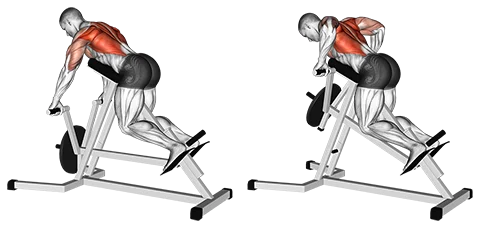The T-bar is a classic tool for building upper-body pulling strength — especially the back. Whether you're using a landmine attachment or a dedicated T-bar machine, it's perfect for loading up heavy rows with power and control.
Why Train with a T-Bar?
T-bar movements are simple, effective, and brutally efficient:
- Heavy Pulling Power: Excellent for loading your lats, traps, and rhomboids.
- Stable Base: Braced chest or neutral grip options reduce lower back strain.
- Variety of Handles: Wide, narrow, neutral — mix up the stimulus.
- Back-Focused Strength: Great for mid and upper back development.
T-Bar vs Other Equipment
Here’s how the T-bar fits into the bigger picture:
- Barbells: Great for bent-over rows, but harder to stabilize under fatigue.
- Machines: Easier to isolate, but lack full-body engagement.
- Dumbbells: Good for single-arm rows, but lighter and harder to load heavy.
- Cables: Provide control and tension, but not as heavy-hitting.
The T-bar sits nicely between raw power and support — a staple for upper-body days.
Getting Started Safely
To get the most out of T-bar training, follow a few basics:
- Set up with a neutral spine and strong hip hinge.
- Use a chest-supported variation if you're dealing with lower back fatigue.
- Pull with your elbows, not your hands — focus on the back, not the biceps.
- Control the tempo, especially on the lowering phase.
Programming T-Bar Workouts
T-bar movements usually shine in pull days or back-focused sessions. Try:
- T-Bar Row (chest-supported or free): A mass-builder for your mid-back.
- Landmine Row: A versatile and core-friendly alternative.
- T-Bar Shrugs: Hit your traps with heavier loads.
- Underhand T-Bar Rows: Emphasize lower lats with a different angle.
Use T-bar lifts as your main row or a heavy back accessory.
Big pulls. Big gains.
Not necessarily — it’s just different. T-bar rows offer more support and can often be loaded heavier with less strain.
Nope! A barbell in a landmine attachment (or even in a corner) works great. Just add a V-handle or grip bar.
Mainly the lats, rhomboids, traps, and rear delts — plus your grip and forearms.

